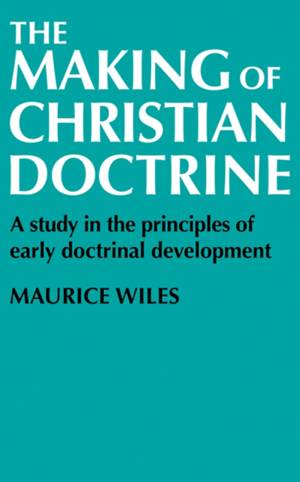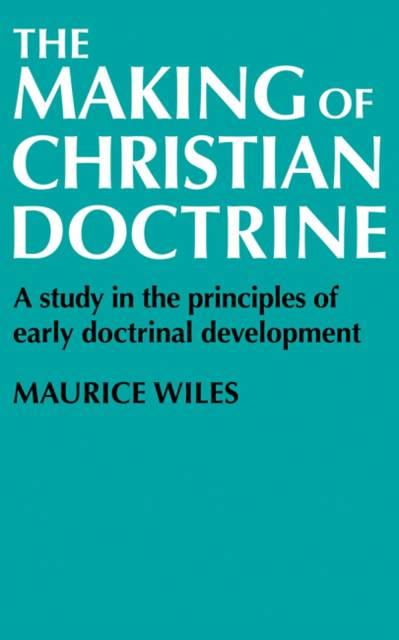
- Afhalen na 1 uur in een winkel met voorraad
- Gratis thuislevering in België vanaf € 30
- Ruim aanbod met 7 miljoen producten
- Afhalen na 1 uur in een winkel met voorraad
- Gratis thuislevering in België vanaf € 30
- Ruim aanbod met 7 miljoen producten
Zoeken
The Making of Christian Doctrine
A Study in the Principles of Early Doctrinal Development
Maurice Wiles
Paperback | Engels
€ 67,95
+ 135 punten
Omschrijving
A paperback edition of this well-known study. Since its first publication in 1967 this book has aroused a lively debate among theologians and practicising clergy. The author had since returned to the discussion (The Remaking of Christian Doctrine, SCM Press 1974) and has stressed the contemporary need to define and develop Christian doctrine. In the earlier work Professor Wiles asks how the early Church fathers' doctrinal affirmations - expressed for example in the Nicene Creed and Chalcedonian Definition - remain valid today when the framework of the fathers' learning and discourse has disappeared. Doctrine was necessary, he argues, to answer objections to Christianity in a largely non-Christian world, to tackle the problem of heresy and to satisfy the desire of Christians to express their faith more deeply. He also considers the sources of doctrinal reasoning - Scripture, the practice of worship and the nature of salvation. These sources are still vital to any development of Christian doctrine today and the author concludes his study with a call for 'the continuation of the same task of interpreting the Church's Scriptures, her worship and her experience of salvation'.
Specificaties
Betrokkenen
- Auteur(s):
- Uitgeverij:
Inhoud
- Aantal bladzijden:
- 200
- Taal:
- Engels
Eigenschappen
- Productcode (EAN):
- 9780521099622
- Verschijningsdatum:
- 26/09/1975
- Uitvoering:
- Paperback
- Formaat:
- Trade paperback (VS)
- Afmetingen:
- 127 mm x 203 mm
- Gewicht:
- 222 g

Alleen bij Standaard Boekhandel
+ 135 punten op je klantenkaart van Standaard Boekhandel
Beoordelingen
We publiceren alleen reviews die voldoen aan de voorwaarden voor reviews. Bekijk onze voorwaarden voor reviews.











